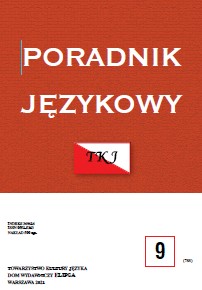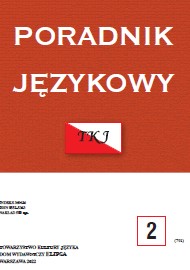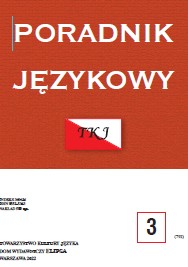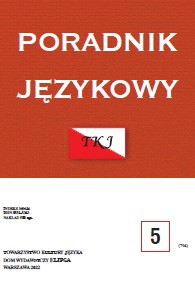
O POZOSTAŁYCH I RESZCIE CZEGOŚ JAKO WYKŁADNIKACH REFERENCJI
This paper focuses on pozostali / pozostałe (the remaining) and reszta czegoś (the rest of something), which function as indicators of reference. It is the aim of the undertaken analysis to determine how these indicators participate in the mechanism of delineating a set of objects. Additionally, the analysis is intended to describe the semantic relationship which occurs between the examined units, and in particular to verify the hypothesis that they are equivalent. Also, the study concerns the dependencies between the abovementioned expressions and a simpler qualifier inny (another) (in its plural forms inni / inne (other / the others)). All of the considered units are indicators of general reference, i.e. they identify a set, and it is their characteristic that this set is relativised to another set delineated earlier. However, they are not synonyms. Differences between pozostali / pozostałe and reszta czegoś are noticeable at the level of defining the identified sets (opposition: distributivity – collectivity), while inny (inni / inne), an expression that is juxtaposed with them, is their hypernym. The study offers detailed reasons for the solutions developed in the course of the analysis.
More...


